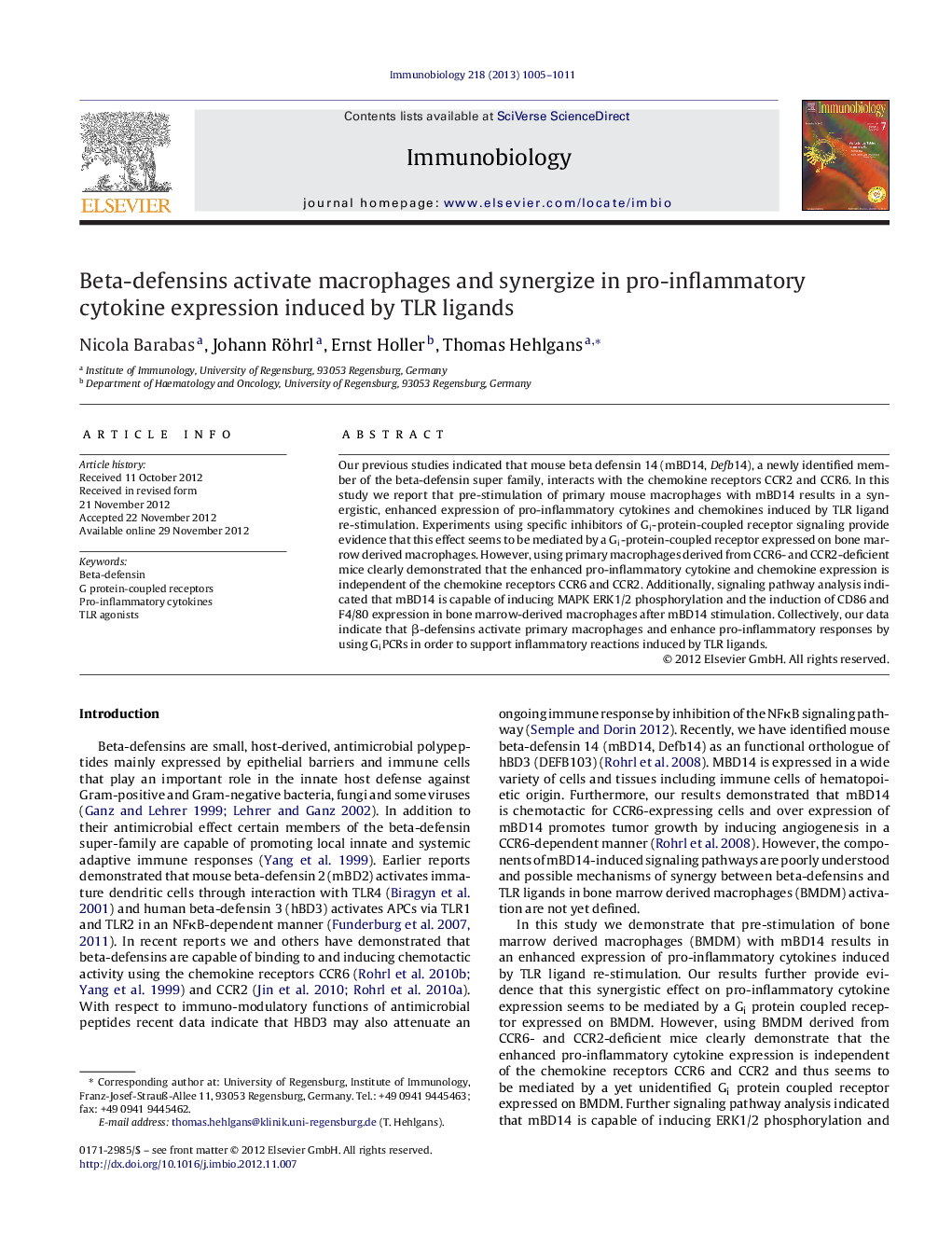| Article ID | Journal | Published Year | Pages | File Type |
|---|---|---|---|---|
| 10941008 | Immunobiology | 2013 | 7 Pages |
Abstract
Our previous studies indicated that mouse beta defensin 14 (mBD14, Defb14), a newly identified member of the beta-defensin super family, interacts with the chemokine receptors CCR2 and CCR6. In this study we report that pre-stimulation of primary mouse macrophages with mBD14 results in a synergistic, enhanced expression of pro-inflammatory cytokines and chemokines induced by TLR ligand re-stimulation. Experiments using specific inhibitors of Gi-protein-coupled receptor signaling provide evidence that this effect seems to be mediated by a Gi-protein-coupled receptor expressed on bone marrow derived macrophages. However, using primary macrophages derived from CCR6- and CCR2-deficient mice clearly demonstrated that the enhanced pro-inflammatory cytokine and chemokine expression is independent of the chemokine receptors CCR6 and CCR2. Additionally, signaling pathway analysis indicated that mBD14 is capable of inducing MAPK ERK1/2 phosphorylation and the induction of CD86 and F4/80 expression in bone marrow-derived macrophages after mBD14 stimulation. Collectively, our data indicate that β-defensins activate primary macrophages and enhance pro-inflammatory responses by using GiPCRs in order to support inflammatory reactions induced by TLR ligands.
Related Topics
Life Sciences
Biochemistry, Genetics and Molecular Biology
Cell Biology
Authors
Nicola Barabas, Johann Röhrl, Ernst Holler, Thomas Hehlgans,
